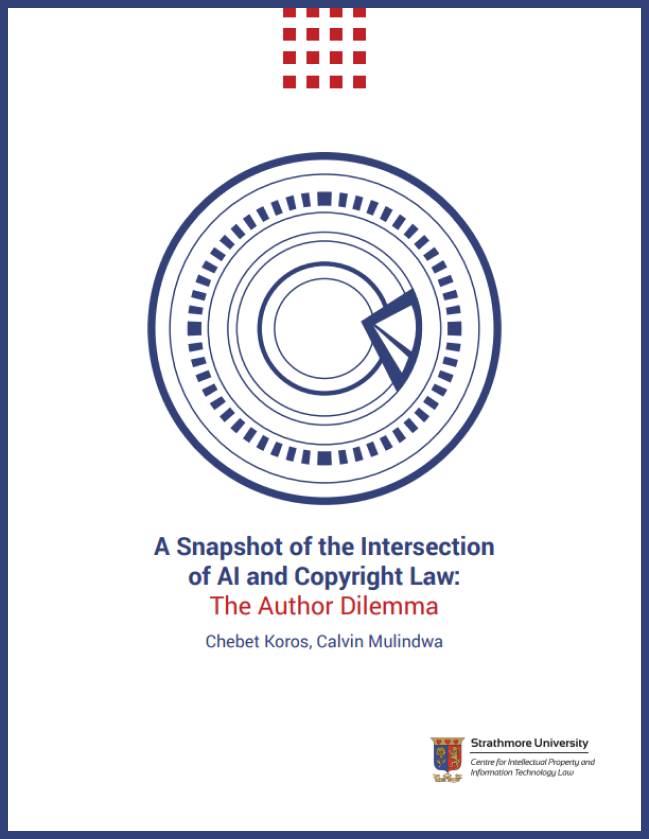IP and AI – IP Resources
- CIPIT |
- November 7, 2023 |
Exploring How Artificial Intelligence Impacts Patents, Trademarks, Copyrights and Trade Secrets
The convergence of Artificial Intelligence (AI) and Intellectual Property (IP) rights marks a new era of innovation and creativity. AI's advanced algorithms are swiftly reshaping industries, yet their integration presents a complex tapestry of challenges and unprecedented possibilities within the IP domain.
In the realm of patents, AI-generated innovations challenge traditional notions of inventorship, raising questions about novelty and inventiveness. The case of DABUS, an AI system that sought patents without human intervention exemplifies this complexity. Different jurisdictions have a varied stance on this, with the US and EU rejecting AI as inventors, and Australia initially accepting it before reversing its decision. On the other hand, South Africa granted a patent to DABUS. Notably, Kenya’s law maintains a human inventorship requirement. Read more on this here.
In the domain of trademarks, AI revolutionizes administration by enhancing evaluation and registration processes through image recognition and classification. However, as AI influences consumer experiences, particularly in tailored recommendations, its role in trademark law becomes more complex. AI's impact on consumer decisions complicates infringement cases, challenging established confusion standards. Read more on this here.
In copyright, AI's creative potential intersects with existing laws. Different jurisdictions diverge on whether AI can be an author, with Europe emphasizing the requirement for the "author's own intellectual creation," the US, Australia, and Kenya requiring human authorship, and the UK uniquely protecting AI-created works. Read more on this here.
AI components find protection in trade secrets, which safeguard algorithms and know-how. The advantages of trade secrets over patents include immediate protection and lenient requirements. However, proving infringement in trade secrets is challenging. Read more on this here.
Navigating the fusion of AI and IP demands precise legal frameworks and ethical guidelines. Collaborative efforts among policymakers, legal experts, and stakeholders are also crucial to balancing innovation, rights, and ethics as AI reshapes industries.
Read more about the practical impact of AI on IP here and here.
Intellectual Property and Artificial Intelligence Booklet Series
The "IP and AI" booklet series is a concise guide to understanding Intellectual Property (IP) in the Artificial Intelligence (AI) landscape. Explore the intricate relationship between Intellectual Property (IP) and AI as we provide essential insights and real-world case studies. Whether you are a tech entrepreneur, a legal expert, or simply curious about technology and IP, these booklets serve as your roadmap to grasp how IP intersects with AI innovations in the digital age.

